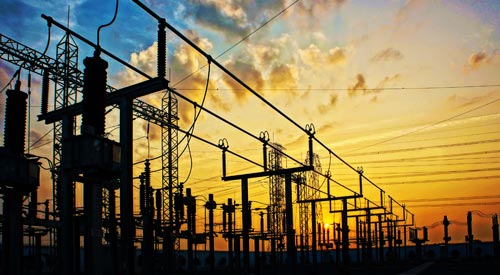OPEC's Venezuela Dilemma and U.S. Energy Policy
Council on Foreign Relations: As senior officials from the Organization of Petroleum Exporting Countries (OPEC) gather in Houston for the international industry gathering CERA Week, they will be listening carefully to speeches by the CEOs of the largest U.S. independent oil companies about the prospects for the rise in U.S. production in 2018 and 2019. Likely, they won’t like what they hear. U.S. industry leaders are saying U.S. shale production could add another one million barrels per day (b/d) or more on top of already substantial increases, if oil prices remain stable. Best C-suite guesses from Texas are that a sustained $50 to $60 oil price could result in a fifteen million b/d mark for U.S. production in the 2020s, up from ten million b/d currently. U.S. shale’s capacity to surprise to the upside is likely to leave OPEC producers with some soul searching to do as they consider their strategy for the second half of the year and beyond.
OPEC has received some unexpected help to make space for rising Iraqi and U.S. oil exports from the sudden collapse of Venezuela’s oil industry where workers, faint from lack of food, are abandoning their posts to emigrate or worse to sell stolen pipes and wires to make ends meet for their families. Energy Intelligence Group is reporting this week that Venezuela’s oil production has fallen to 1.4 million b/d last month, down from 1.8 million b/d just last autumn. But ironically, a further collapse of Venezuela’s oil industry could make OPEC’s deliberations harder, not easier, if it ruptures the conviction of the current output reduction sharing coalition. If too many Venezuelan oil workers abandon their posts at once out of desperation, the country’s fate could more closely mirror Iran in 1979 when a crippling oil worker’s strike brought Iranian oil exports to zero and rendered the Shah’s rule untenable. The U.S. also continues to mull additional sanctions against Venezuela, including oil trade related restrictions, to pressure Caracas to restore democratic processes inside its borders. Trading with state owned PDVSA is becoming more difficult but Venezuela has been using U.S. tight oil as a diluent for its heavy oil.
Share
Top Stories
- Energy Department wants national labs to drive regional innovation
- How solar surge saved Europe from the energy crisis
- Study: Puerto Rico should go solar to meet clean energy goal
- The Federal Government Can Use Its Buying Power to Help the Environment and Save Taxpayers Money
- EVs, Building Emissions Among Biden’s Sustainable Energy Priorities
- Deploying Clean Energy Tech Depends on Cost Efficiency, Officials Say
- National Labs to Receive $1.5B Funding Boost
- Solar, telecom rollouts offer lessons for mass EV charging station deployments
- EPA to strengthen proposed rule on methane emissions from oil, gas
- Getting to ‘Net-zero’ Emissions: How Energy Leaders Envision Countering Climate Change in the Future
- Tech Wanted: Government Calls on Industry to Help with Net-Zero Carbon Buildings
- EPA Calls Out Environmental Racism in Louisiana’s Cancer Alley
- Hawaii to U.S. Navy: Quit Polluting Our Waters
- Climate-Based Trainings and Performance Plans Are Coming for Federal Employees
- Infrastructure permitting reform plan blocked in Senate
- Hydro-Québec’s radical but careful digital transformation could be a model for utilities everywhere
i360Gov Newsletters
The most significant government policy, business, and technology news and analysis delivered to your inbox.
Subscribe NowTrending
- Solar, telecom rollouts offer lessons for mass EV charging station deployments
- Tech Wanted: Government Calls on Industry to Help with Net-Zero Carbon Buildings
- Energy Asks for New R&D in Critical Materials for Clean Energy
- Hydro-Québec’s radical but careful digital transformation could be a model for utilities everywhere
- California sets ‘ambitious’ offshore wind goal of up to 5 GW by 2030
- TSA revises cyber rules for pipelines
- Energy Awards Over $540 Million for Green Tech Research
- National Labs to Receive $1.5B Funding Boost


















